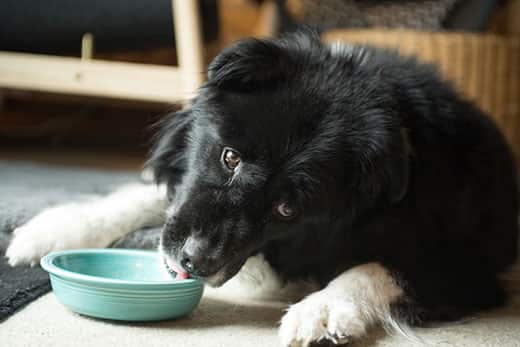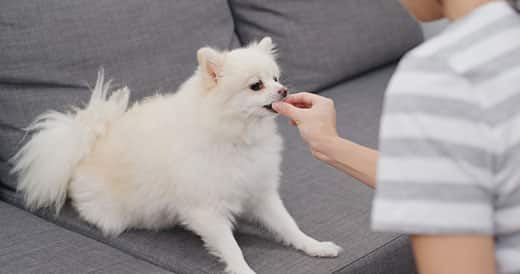
-
Find the right food for your pet
Take this quiz to see which food may be the best for your furry friend.
Find the right food for your pet
Take this quiz to see which food may be the best for your furry friend.
Featured products
 Adult 7+ No Corn, Wheat, Soy Chicken & Brown Rice Dog Food
Adult 7+ No Corn, Wheat, Soy Chicken & Brown Rice Dog FoodSupports energy level and beautiful coat in mature dogs
Shop Now Adult Perfect Weight & Joint Support Chicken Recipe Dry Dog Food
Adult Perfect Weight & Joint Support Chicken Recipe Dry Dog FoodThis weight management and mobility support dog food was created with Hill’s unique understanding of the biology of overweight dogs.
Shop Now Adult 7+ Perfect Digestion Chicken, Whole Oats & Brown Rice Recipe Dog Food
Adult 7+ Perfect Digestion Chicken, Whole Oats & Brown Rice Recipe Dog FoodScience Diet's breakthrough nutrition supports ultimate digestive well-being & healthy microbiome for dogs age 7+
Shop NowFeatured products
 Adult Perfect Digestion Chicken, Barley & Whole Oats Recipe Cat Food
Adult Perfect Digestion Chicken, Barley & Whole Oats Recipe Cat FoodScience Diet's breakthrough nutrition supports ultimate digestive well-being & healthy microbiome
Shop Now Perfect Weight Salmon & Vegetable Canned Cat Food
Perfect Weight Salmon & Vegetable Canned Cat FoodOver 70% of cats lost weight within 10 weeks when fed this nutrition
Shop Now Adult Savory Chicken Entrée Cat Food
Adult Savory Chicken Entrée Cat FoodPrecisely balanced nutrition with the delicious taste of savory minced chicken to help fuel the energy needs of cats during the prime of their life
Shop Now -
Dog
- Dog Tips & Articles
-
Health Category
- Weight
- Food & Environmental Sensitivities
- Urinary
- Digestive
- Joint
- Kidney
-
Life Stage
- Puppy Nutrition
- Adult Nutrition
- Senior Nutrition
Cat
- Cat Tips & Articles
-
Health Category
- Weight
- Skin & Food Sensitivities
- Urinary
- Digestive
- Kidney
-
Life Stage
- Kitten Nutrition
- Adult Nutrition
Featured articles
 Pet Food Storage Tips
Pet Food Storage TipsDiscover how and where to store your dry, as well as canned, dog and cat food. Learn how to find the "best before" dates on all Hill's pet food packaging.
Read More Water
WaterDiscover why water is the most important nutrient for your dog or cat to live a healthy life. Find out how much water your pet should consume each day.
Read More The Incredible Science Behind Your Pet's Microbiome
The Incredible Science Behind Your Pet's MicrobiomeLearn what a pet's microbiome is, how it contributes to your pet's gut & overall health, and why nutrition is important in maintaining healthy microbiomes.
Read More -
Find the right food for your pet
Find the right food for your pet


When humans sit down for a meal, they usually take time to enjoy their food. Your dog, though, takes a completely different approach — they usually finish their kibble in seconds. Read on to learn any potential issues that can happen with your dog eating too fast, plus what you can do to slow them down.
Why Does My Dog Eat So Fast?

While it's possible that your pooch just really likes their food, here are a few more likely reasons why your dog eats fast:
- Competition: If you have more than one dog, your fast eater may feel they have to eat quickly to keep other dogs from snatching food from them, says PetSafe. Or, they may have had to compete for food as a puppy with their litter mates. This sense of competition could also be instinctual. So, even if your pup is an only dog, they may view other members of the household, including cats and people, as competition.
- Irregular meal timing: If you adopted your dog from the shelter it's possible that their previous owners did not follow proper feeding etiquette or keep to a regular feeding schedule, so your dog eats as if they aren't sure when they'll get their next meal. This can also be true of dogs who were formerly strays and had to find food in the wild. After time, care and lots of love, your dog may start to slow down, realizing that their next meal isn't too far away.
- Poor nutrition: The quality of your dog's food might be to blame. Some foods aren't well-balanced. Check with your veterinarian to ensure your dog is getting the proper nutrients, and get a recommendation for a high-quality food.
- Underlying illness: It's possible that an underlying health condition is causing your dog to feel excessively hungry. Diabetes and Cushing's syndrome can impact your dog's metabolism and increase their appetite, says Puppytip. Worms or other parasites could also be the culprit.
The Dangers of Dogs Eating Too Fast

Not only can fast-eating signal an untreated illness — but it can also cause your dog to become sick. According to the American Kennel Club (AKC), if your dog eats too fast, they could experience digestive problems and vomiting. More seriously, consuming food without chewing is a choking hazard. Another risk is a condition called bloat, which occurs when a dog swallows a lot of air as a result of eating too quickly, says the AKC. Bloat is very uncomfortable for your dog. GDV requires immediate veterinary attention because your pup's stomach is twisted, which can lead to a rupture.
If the reason for your dog's fast eating isn't clear, it's a good idea to have them checked out by a vet — especially if it's a new behavior.


Tasty Tips
How to Slow Down Speed-Eating Dogs
If it turns out that your dog has an underlying illness, treating the condition will hopefully return their appetite to normal and slow down their eating. If low-quality food is the issue, then switching to one of better quality should solve the problem. Feeding competitive eaters separately from other pets in a place where they feel safe to eat more slowly might take care of that particular problem. But if none of those solutions slow your fast eater, here are a few tricks you can try:
- Increase feedings: Serving your pup smaller meals two or three times a day instead of giving them all of their food at once may help. Having smaller meals also decreases their risk for bloat, says Dogster.
- Use a slow feeder bowl: Slow feeder bowls have built-in obstacles specifically designed to cause dogs to eat more slowly. Commercially made bowls are available, but you can also make your own by placing a smaller bowl upside down inside your dog's regular dish and pouring their food around it.
- Make meal time fun: Serve your pooch's food inside a food-dispensing dog toy that only releases a few pieces of kibble at a time. You can make your own version by simply placing a muffin tin upside down and pouring their food in between the muffin molds, so they have to fish it out.
While the reason behind your dog's fast eating may not be serious, if left unchecked, your pup's eating habits could lead to a medical issue. Next time you see your dog inhale their food, remember that what seems like just quirky behavior could have a serious impact on their health.


Jean Marie Bauhaus is a pet parent, pet blogger, and novelist from Tulsa, Oklahoma, where she usually writes under the supervision of a lapful of fur babies.
Related products

This weight management and mobility support dog food was created with Hill’s unique understanding of the biology of overweight dogs.

Delicious braised beef paired with tender vegetables in a succulent stew

Science Diet's breakthrough nutrition supports ultimate digestive well-being & healthy microbiome for dogs age 7+

Supports energy level and beautiful coat in mature dogs
Related articles

Learn about Hill's puppy food and the nutritional benefit & high quality ingredients that it contains for your pup.

Large and giant breed puppies have different nutritional needs than other dogs. Learn how to provide the special care they need to grow up big and strong.

Understand the role that Omega-6 and Omega-3 fatty acids play in your dog's overall health, and how you can ensure they are getting enough.

Proper nutrition for your pregnant or nursing dog is vital to her and her puppy's health. Learn what you should do provide her with the proper nutrients.

Put your dog on a diet without them knowing
Our low calorie formula helps you control your dog's weight. It's packed with high-quality protein for building lean muscles, and made with purposeful ingredients for a flavorful, nutritious meal. Clinically proven antioxidants, Vitamin C+E, help promote a healthy immune system.
Put your dog on a diet without them knowing
Our low calorie formula helps you control your dog's weight. It's packed with high-quality protein for building lean muscles, and made with purposeful ingredients for a flavorful, nutritious meal. Clinically proven antioxidants, Vitamin C+E, help promote a healthy immune system.

